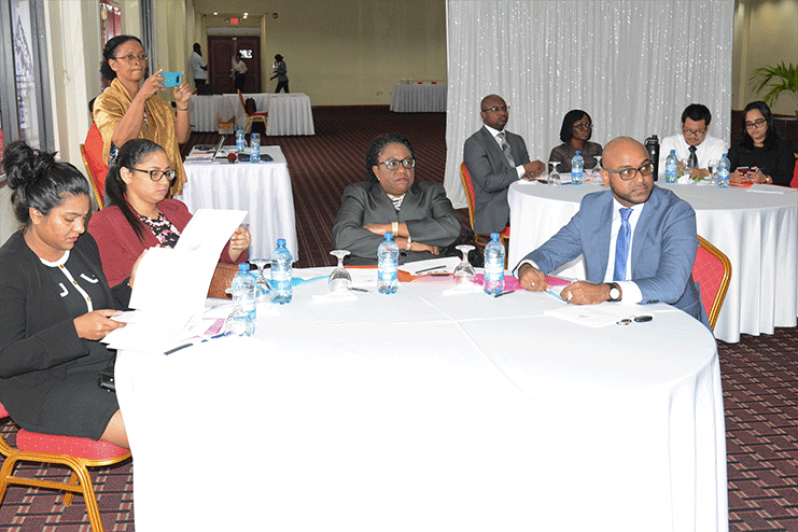MAGISTRATES, on Friday, discussed policies and procedures governing juvenile justice diversion, alternative sentencing and restorative justice, as they push to improve the judicial system.
The meeting was held at the Ramada Princess Hotel, Providence, East Bank Demerara.
In his address, Minister of Public Security, Khemraj Ramjattan, said the ministry’s Juvenile Justice Department has been moving apace, in building capacity among stakeholders, regarding policies and procedures of diversion and alternative sentencing for juveniles.
The department, he said, collaborated with the United States Agency for International Development (USAID) Community, Family, and Youth Resilience (CYFR) Programme to train magistrates in Juvenile Justice Diversion and Alternative Sentencing (JJDAST).
He said thus far, 35 civil society core groups have been trained, from which a cohort will be drawn to support diversion programming in the ten administrative regions of Guyana. Prosecutors from the Office of the Director of Public Prosecutions (DPP), Staff members of the Guyana Legal Aid Clinic, Child Protection Officers and Probation Officers are among the beneficiaries of the Juvenile Justice Diversion and Alternative Sentencing Training.
This series of training workshops commenced on November 14, 2019. They were facilitated by Dr. Dianne Williams, a Consultant, a Criminologist and Certified Criminal Justice Specialist.
The training sessions were aimed at building the capacity of participants to better implement diversion and alternative sentencing programmes.
“We damage the lives of young people even more if we do not treat them properly at that young age when they would have met some unfortunate incident,” the Minister noted.
He told the magistrates that, in handing down their judgments, they should create opportunities for juveniles to become better persons.
Ramjattan said that magistrates will have to take a multidisciplinary approach in dealing with the background of youths, their psychology and their ability to rehabilitate.
Moreover, the minister noted that, in conjunction with USAID/CFYR, two training workshops were also conducted with staff at Juvenile Holding facility on March 25 and 26, 2019.
He explained that staff were exposed to key concepts of the Juvenile Justice Act of 2018, Regulatory/Standards Model of Justice Management and the forms used to track youth behavior and property inventory. A reporting form was devised by the consultant for the staff of the Holding Centre to record and communicate residents’ behaviour history and progress, for use by the Probation Department and the magistrates.
Minister Ramjattan told magistrates that his ministry will leave “no stone unturned” to ensure stakeholders become au fait and develop the capacity to execute their mandate.
He said that with so many players required in the fight, the training was more so necessary.




.png)









